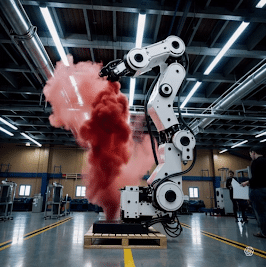It seems we can’t find what you’re looking for. Perhaps searching can help.
Integrating Computer Vision and AI into Construction
Syllabus
The construction industry is undergoing a technological revolution, driven by advances in artificial intelligence (AI), automation and data-driven decision-making. The integration of AI, digital technologies, and intelligent systems is at the core of this transformation, enhancing efficiency, sustainability and safety in construction projects. By leveraging tools such as computer vision and machine learning, the industry is shifting towards more precise, automated and optimized workflows, improving productivity and reducing costs.
One of the key aspects of Smart Construction is the use of real-time data and AI-powered analytics to monitor and improve project performance. With technologies like computer vision, construction sites can be analyzed automatically using cameras, detecting errors, tracking progress and ensuring compliance with safety regulations. Machine learning algorithms help predict potential delays, optimize resource allocation and enhance decision-making, leading to cost reductions and minimal waste.
This course will provide students with a comprehensive understanding of Smart Construction, focusing on the application of artificial intelligence and automation in the built environment. Through a combination of theoretical insights, real-world case studies and hands-on exercises, students will gain practical experience in applying advanced AI techniques for monitoring and extracting information.
Students will explore the role of data in construction, how it is collected, processed, and analyzed to automate key processes. The course will cover real-world examples of how computer vision can be integrated into construction workflows, extracting valuable insights and enabling more efficient project management. Students will learn how to approach object detection, track construction progress using AI and leverage data to drive innovation in the industry.
To put this knowledge into practice, students will become familiar with Python and Google Colab, learning the fundamental concepts and terminology of computer vision. The course will introduce key tools such as OpenCV and custom-made algorithms, allowing students to apply AI techniques to translate real-world construction data into actionable insights automatically.
Learning Objectives
The workshop aims to achieve the following learning objectives:
- Gain a comprehensive understanding of Smart Construction, exploring its diverse applications and learning how AI enhances the construction process.
- Understand the fundamentals of automation in construction, exploring how autonomous systems and robotics contribute to smart building processes.
- Develop the ability to work with computer vision and machine learning tools, applying them to automate and optimize construction tasks.
- Learn to use Python, OpenCV, and Google Colab for image processing and data extraction in construction projects.
- Apply AI and computer vision techniques to analyze and interpret construction site data, improving efficiency and safety.
- Develop problem-solving skills through hands-on exercises, bridging the gap between theoretical knowledge and real-world applications in construction.
This workshop is designed to equip participants with essential AI, computer vision and automation skills, enhancing their ability to integrate these technologies into modern construction workflows.





